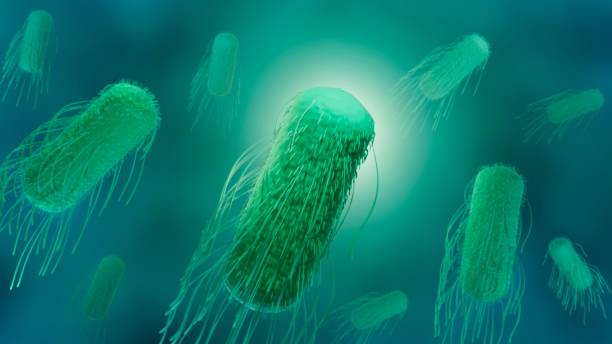Foodborne illnesses are a serious concern for consumers, with one of the most common culprits being Salmonella. Understanding your legal protections when it comes to cases of Salmonella in food is crucial for safeguarding your health and rights as a consumer. This informative blog post will probe into the legal aspects surrounding Salmonella contamination, including your rights, potential liabilities, and steps you can take to seek recourse in such situations.
Understanding Salmonella
What is Salmonella?
With over 2,500 identified strains, Salmonella is a type of bacteria that typically causes food poisoning in humans. It can be found in the intestines of animals, birds, and humans.
Sources and Transmission
On some occasions, Salmonella can be present in raw meats, poultry, eggs, and unpasteurized dairy products. It can also contaminate fruits and vegetables if they come into contact with infected animal feces or contaminated water.
Understanding the sources and transmission of Salmonella is crucial to preventing foodborne illnesses. It can be transmitted through consumption of contaminated food, cross-contamination during food preparation, or poor hygiene practices.
Regulations and Standards
Federal Food Safety Laws
The Federal Food, Drug, and Cosmetic Act, the Public Health Service Act, and other important federal laws provide the foundation for ensuring the safety of our food supply. These laws give regulatory agencies the power to establish and enforce safety standards to protect consumers from foodborne illnesses.
The Role of the FDA and USDA
One of the key agencies responsible for food safety oversight is the U.S. Food and Drug Administration (FDA), which regulates the safety of most foods, including seafood, dairy products, and produce. Meanwhile, the U.S. Department of Agriculture (USDA) focuses on the safety of meat, poultry, and egg products. Both agencies work together to monitor and inspect food facilities, conduct research, and implement regulations to reduce the risk of foodborne illnesses.
To ensure the safety of our food supply, it is crucial for these regulatory agencies to work collaboratively with food producers, processors, and distributors. By conducting inspections, implementing safety standards, and enforcing regulations, the FDA and USDA play a critical role in safeguarding public health and preventing outbreaks of foodborne illnesses.
Your Rights and Recourse
When Food Poisoning Becomes a Legal Matter
All instances of food poisoning due to Salmonella are not just health concerns, they can also become legal matters. If you have been diagnosed with Salmonella poisoning after consuming contaminated food, you have legal protections and rights that can help you seek justice and compensation.
Seeking Compensation for Salmonella Poisoning
One of the legal recourses available to individuals who have suffered from Salmonella poisoning is seeking compensation. This compensation can cover medical expenses, lost wages, pain and suffering, and other related damages. It is crucial to hold the responsible parties accountable for the harm caused by their negligence in food safety practices.
Seeking compensation for Salmonella poisoning can involve gathering evidence such as medical records, receipts, and witness testimonies to build a strong case. Consulting with an experienced attorney who specializes in food poisoning cases can greatly improve your chances of receiving fair compensation for your damages.
Prevention and Control
Industry Responsibilities
Prevention of salmonella contamination in food products is a critical responsibility for all food industry players. Strict adherence to proper food handling, storage, and sanitation practices is key to minimizing the risk of salmonella contamination. Regular training of staff on food safety protocols, implementing HACCP (Hazard Analysis and Critical Control Points) plans, and ensuring proper cleaning and sanitization of equipment are imperative steps to prevent contamination.
Consumer Best Practices
Industry regulations and standards play a vital role in controlling salmonella in food, but consumer awareness and practices are equally important. Consumers should always cook foods, especially poultry, eggs, and meat, to the recommended internal temperatures to kill any potential salmonella bacteria. Proper storage of perishable foods in the refrigerator, maintaining cleanliness in the kitchen, and preventing cross-contamination between raw and cooked foods are also imperative practices to prevent the spread of salmonella.
Consumers can further protect themselves by being cautious when handling raw foods and ensuring proper handwashing before and after food preparation. By following these best practices, consumers can significantly reduce the risk of salmonella contamination in their homes.
Summing up
Hence, understanding your legal protections when it comes to Salmonella in food is crucial for ensuring consumer safety and holding responsible parties accountable. By familiarizing yourself with the laws and regulations surrounding food safety, you can protect yourself and your loved ones from the harmful effects of contamination. Stay informed, ask questions, and know your rights to help prevent the spread of Salmonella and protect your health.
Secure Your Rights with No-Risk Legal Support in Foodborne Illness Cases
Navigating the complex world of food safety and legal recourse can be daunting for victims of foodborne illnesses and those affected by food recalls. Whether you’re dealing with the aftermath of consuming contaminated products from Chipotle, Blue Bell, or facing health issues due to pathogens like E. Coli, Cyclospora, or Salmonella, it’s crucial to understand your rights and the steps you can take towards seeking justice and compensation. Our team of dedicated legal experts specializes in providing personalized advice and robust representation, offering a 100% free consultation to ensure your case is handled with the utmost care and professionalism. What’s more, we operate on a “No Win, No Fee” basis, meaning you pay nothing unless we secure a victory for you. If you or a loved one has been affected by a food recall or a foodborne illness, don’t hesitate to reach out. Let us help you navigate the legal process and fight for the compensation you deserve



